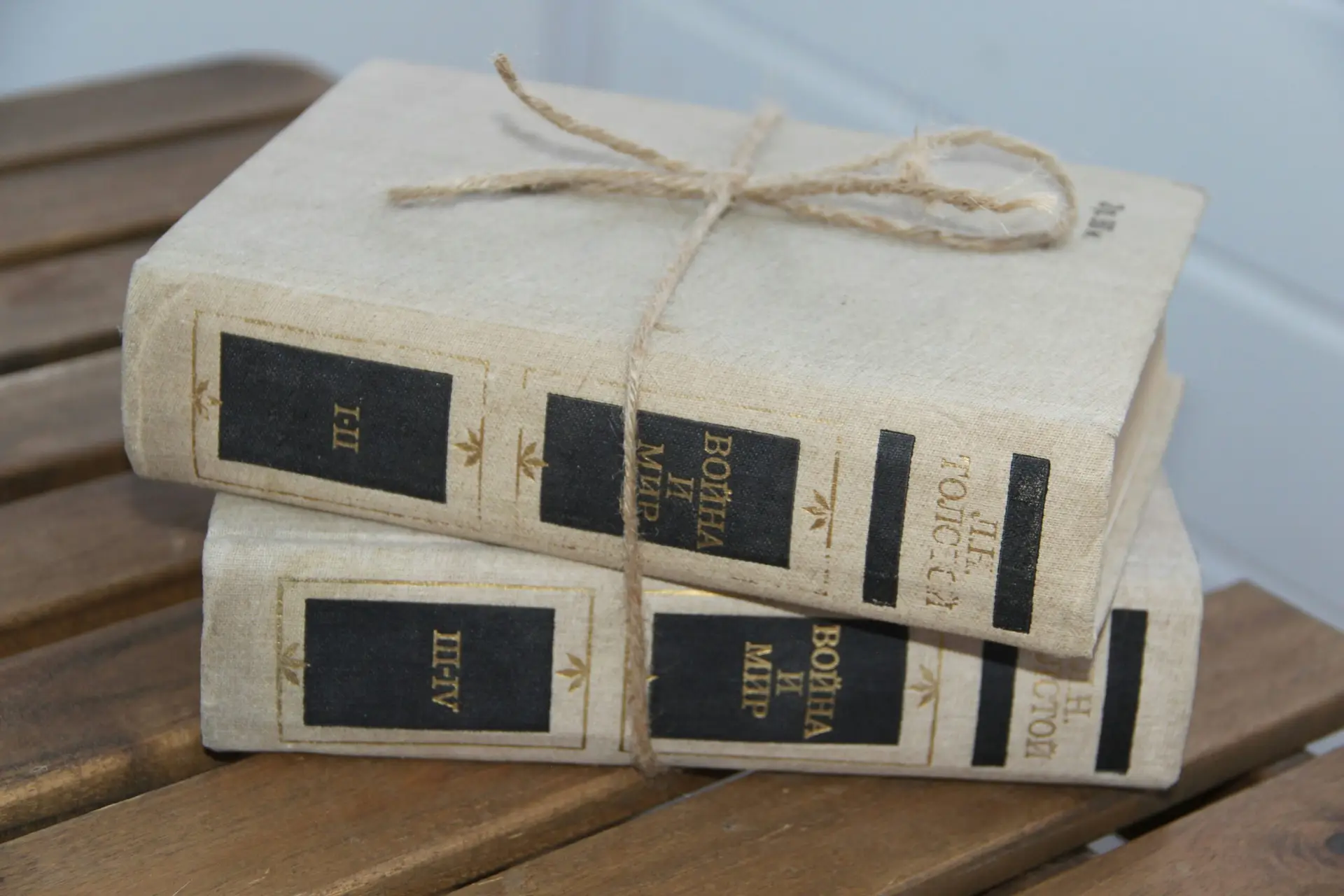
The Best Russian Literature Books You Can’t Miss
The Best Russian Literature Books You Can’t Miss Writers use analogies to describe, explain, or beautify their writing. Sometimes, analogies are pretty natural, but sometimes,
Russia is the largest country in the world, located in northern Eurasia, spanning across two continents – Europe and Asia. It is known for its rich history, diverse culture, and strong influence on global politics and economy. The country is home to a population of more than 144 million people, with the majority residing in urban areas such as Moscow and St. Petersburg. The official language is Russian, and the predominant religion is Russian Orthodox Christianity. Russia has a strong industrial and technological base, with a highly educated workforce and a diverse economy that is dependent on natural resources such as oil, natural gas, and minerals. The country has a rich cultural heritage, with a long history of literature, music, art, and architecture, including the works of famous artists such as Tolstoy, Dostoyevsky, and Tchaikovsky.
Crime and Punishment is a novel by Fyodor Dostoevsky, first published in 1866. The story follows Rodion Raskolnikov, a poor and dispirited ex-student who lives in St. Petersburg, Russia. Raskolnikov believes that he is an extraordinary person and above the law, and he justifies his plan to murder an unscrupulous pawnbroker as a way to benefit society. However, after the murder, Raskolnikov becomes increasingly consumed by guilt and paranoia, and he struggles to reconcile his actions with his conscience. As he tries to evade the police and avoid suspicion, he encounters a variety of characters, including a righteous police inspector, a kind-hearted prostitute, and his own family members. The novel explores themes of morality, guilt, redemption, and the nature of humanity. It is considered a masterpiece of Russian literature and a landmark of psychological fiction, influencing many subsequent works in the genre.
War and Peace is a novel by Leo Tolstoy, first published in 1869. The book chronicles the history of the French invasion of Russia and the impact of the Napoleonic era on Tsarist society through the stories of five Russian aristocratic families.
The novel is divided into four books, with the first and largest book focusing on the lead-up to the French invasion of Russia, while the remaining books cover the war itself and its aftermath. Alongside the historical events, Tolstoy explores the personal lives and relationships of his characters, including their romances, marriages, and familial bonds.
The novel addresses themes such as war, love, family, politics, and human nature. It is famous for its realistic depiction of life in 19th-century Russia and its complex, multi-dimensional characters. It is considered one of the greatest works of world literature and a pinnacle of the realist novel genre.
Lolita is a novel by Vladimir Nabokov, first published in 1955. The book is narrated by its protagonist, Humbert Humbert, a middle-aged literature professor, who becomes obsessed with a twelve-year-old girl named Dolores Haze, whom he nicknames “Lolita”.
Humbert Humbert’s obsession with Lolita leads him to become her stepfather after marrying her mother, Charlotte Haze, in order to stay close to her. The novel follows their journey as they travel across the United States, and the narrative is dominated by Humbert’s complex emotions towards Lolita, ranging from love and tenderness to jealousy and possessiveness.
The novel explores themes such as obsession, desire, morality, and the relationship between reality and fantasy. It is controversial for its subject matter, which includes pedophilia and incest, and has been both praised for its literary merit and criticized for its content. Despite its controversial nature, it is widely considered a masterpiece of 20th-century literature and is considered one of the most influential novels of the modern era.
Eugene Onegin is a novel in verse by Russian author Alexander Pushkin, first published in 1833. The book tells the story of Eugene Onegin, a cynical and world-weary young man who inherits a country estate from his uncle and moves to the countryside.
There, he meets Tatyana, a romantic and sensitive young woman who falls in love with him. However, Onegin rejects her advances and instead pursues a shallow socialite named Olga, Tatyana’s younger sister. This rejection leads to tragic consequences for both Onegin and Tatyana.
The novel explores themes such as love, rejection, social status, and the conflict between urban and rural life. It is famous for its lyrical and elegant language and its use of the Onegin stanza, a form of poetry invented by Pushkin. Eugene Onegin is considered one of the greatest works of Russian literature and has had a significant impact on Russian culture and society.
The Idiot is a novel by Fyodor Dostoevsky, first published in 1869. The book tells the story of Prince Lev Nikolayevich Myshkin, a kind and compassionate man who returns to Russia after spending several years in a Swiss sanatorium for treatment of epilepsy.
Myshkin’s childlike innocence and naivety make him stand out in the corrupt and cynical society of St. Petersburg, and he quickly becomes embroiled in the lives of a group of aristocrats. He is particularly drawn to two women, Nastasya Filippovna, a beautiful but troubled woman, and Aglaya Yepanchin, a young woman who is engaged to another man.
The novel explores themes such as innocence, morality, love, and the nature of humanity. It is considered one of Dostoevsky’s most complex and philosophical works, with the character of Myshkin serving as a representation of the Christ-like figure of self-sacrifice and forgiveness. The Idiot is widely regarded as a masterpiece of Russian literature and a major influence on subsequent literary movements.
“The Fool” (original title “Durak”) is a 2014 Russian drama film directed by Yury Bykov. The movie is set in a small Russian town where a young plumber named Dima, who is honest and idealistic, discovers a major structural problem in a building that houses many families.
Dima alerts the authorities, but they are all corrupt and refuse to take action, even when Dima presents evidence that the building is on the verge of collapse. Dima’s struggle to save the building becomes a race against time, as the residents refuse to evacuate and the local officials try to cover up their negligence.
The movie explores themes of corruption, social responsibility, and the conflict between individual ethics and the greater good. “The Fool” has been critically acclaimed for its tense atmosphere, strong performances, and incisive commentary on contemporary Russian society. It won several awards at international film festivals and has been regarded as one of the best Russian movies of the 2010s.
“Leviathan” (original title “Leviafan”) is a 2014 Russian drama film directed by Andrey Zvyagintsev. The movie is set in a remote coastal town in northern Russia and tells the story of Kolya, a man who is fighting against a corrupt mayor who wants to seize his property.
Kolya enlists the help of his friend, a lawyer from Moscow, to fight the mayor in court. As the legal battle unfolds, the personal lives of the characters are also explored, including Kolya’s strained relationship with his wife and son and the lawyer’s troubled past.
The movie is a critique of contemporary Russian society, focusing on themes such as corruption, power, and the struggle of the individual against the state. It is known for its visually stunning cinematography, strong performances, and intricate storytelling. “Leviathan” won the Best Screenplay award at the 2014 Cannes Film Festival and has been praised as one of the best Russian movies of the 2010s.
“Loveless” (original title “Nelyubov”) is a 2017 Russian drama film directed by Andrey Zvyagintsev. The movie tells the story of a couple going through a bitter divorce who are too busy with their own lives to pay attention to their 12-year-old son, Alyosha.
When Alyosha disappears, the couple is forced to put aside their differences and search for their son. The search for Alyosha becomes a metaphor for the larger social issues facing contemporary Russia, such as family breakdown, social isolation, and political corruption.
The movie is known for its stark and emotionally raw portrayal of the characters, as well as its bleak yet thought-provoking commentary on contemporary Russian society. It won the Jury Prize at the 2017 Cannes Film Festival and has been praised as one of the best Russian movies of the 2010s.
“Citizen K” is a 2019 documentary film directed by Alex Gibney that focuses on the life of Mikhail Khodorkovsky, a former Russian oligarch and political dissident.
The movie charts Khodorkovsky’s rise to power and wealth in the 1990s, his arrest and imprisonment by the Russian government in the early 2000s, and his subsequent exile in Europe.
The film explores Khodorkovsky’s efforts to challenge the Putin regime from afar, his involvement in Russian opposition politics, and his ongoing campaign for political change in Russia. It also delves into the broader issues of corruption, human rights, and political repression in contemporary Russia.
“Citizen K” has been praised for its insightful and nuanced portrayal of one of Russia’s most controversial public figures, as well as its compelling analysis of the complex political landscape of modern Russia.
“Leto” (English title: “Summer”) is a 2018 Russian musical drama film directed by Kirill Serebrennikov. The movie is set in Leningrad (now St. Petersburg) during the early 1980s and follows the story of a young musician named Viktor Tsoi, who becomes a rising star in the Soviet rock scene.
The film captures the vibrant underground music scene of the time and features performances of songs by influential Soviet bands, including Kino, Zoopark, and Akvarium. The movie also explores the relationships between Viktor, his wife, and a charismatic older musician named Mike, who becomes a mentor to Viktor.
“Leto” is known for its stylish and visually stunning cinematography, as well as its nostalgic yet incisive commentary on Soviet society during the last years of the Soviet Union. It has been praised for its portrayal of artistic freedom and the counterculture movement in the Soviet Union, as well as its depiction of the power of music to unite people across cultural and political divides.
Russian music has a rich and diverse history, spanning centuries and incorporating influences from various cultural and artistic movements. Traditional Russian music is characterized by the use of instruments such as the balalaika (a three-stringed guitar-like instrument), the domra (a long-necked lute), and the accordion. Folk music from different regions of Russia often features unique rhythms, melodies, and vocal styles that reflect local traditions and customs.
Classical music also has a strong tradition in Russia, with famous composers such as Tchaikovsky, Rachmaninoff, and Stravinsky all hailing from the country. Russian classical music is known for its grandeur, intense emotions, and use of folk themes and motifs.
In addition to traditional and classical music, Russia has a vibrant contemporary music scene, with popular genres such as pop, rock, and hip-hop. Many famous Russian musicians and bands have achieved international success, including acts like t.A.T.u., Zemfira, and Dima Bilan.

The Best Russian Literature Books You Can’t Miss Writers use analogies to describe, explain, or beautify their writing. Sometimes, analogies are pretty natural, but sometimes,

